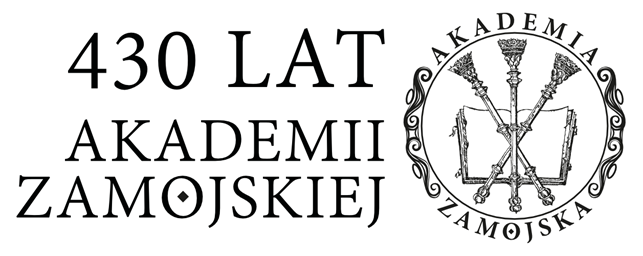Arnold G., Gustav Stresemann und die Problematik der deutschen Ostgrenzen, Frankfurt am Main 2000.
Ash T.G., W imieniu Europy. Niemcy i podzielony kontynent, tłum. S. Kowalski, Londyn 1996.
Basler W., Deutschlands Annexionspolitik in Polen und im Baltikum 1914-1918, Berlin 1962.
Baumgart W., Deutsche Ostpolitik 1918. Von Brest-Litowsk bis zum Ende des Ersten Weltkrieges, Wien-München 1966.
Bew J., Realpolitik: A History, New York 2016.
Bingener R., Wehner M., Die Moskau-Connection. Das Schröder-Netzwerk und Deutschlands Weg in die Abhängigkeit, München 2023.
DOI: https://doi.org/10.17104/9783406799426
Canis K., Von Bismarck zur Weltpolitik. Deutsche Außenpolitik 1890 bis 1902, Berlin 1999.
DOI: https://doi.org/10.1524/9783050048031
Conze E., Die grosse Illusion. Versailles 1919 und die Neuordnung der Welt, München 2018.
DOI: https://doi.org/10.5771/9783748902232-11
Fischer F., „Im deutschen Interesse“. Die Ostpolitik der SPD von 1969 bis 1989, Husum 2001.
Fischer P., Die deutsche Publizistik als Faktor der deutsch-polnischen Beziehungen 1919-1939, Wiesbaden 1991.
Hauser P., Niemcy a konflikt polsko-radziecki w latach 1919-1920, w: Rok 1920 z perspektywy osiemdziesięciolecia, red. A. Ajnenkiel, Warszawa 2001, s. 256-261.
Ingrao C., Obietnica Wschodu. Nazistowskie nadzieje i ludobójstwo 1939-1943, tłum. J. Jedliński, Warszawa 2022.
Kaiser U., Realpolitik oder antibolschewistischer Kreuzzug? Zum Zusammenhang von Rußlandbild und Rußlandpolitik der deutschen Zentrumspartei 1917-1933, Frankfurt am Main 2005.
Klare K.-A., Imperium ante portas. Die deutsche Expansion in Mittel- und Osteuropa zwischen Weltpolitik und Lebensraum (1914-1918), Wiesbaden 2020.
Koenen G., Der Russland-Komplex. Die Deutschen und der Osten 1900-1945, München 2005.
Krekeler N., Revisionsanspruch und geheime Ostpolitik der Weimarer Republik. Die Subventionierung der deutschen Minderheit in Polen 1919-1933, Stuttgart 1975.
Krüger P., Die Aussenpolitik der Republik von Weimar, Darmstadt 1993.
Krumeich G., Als Hitler den Ersten Weltkrieg gewann. Die Nazis und die Deutschen 1921-1940, Freiburg im Breisgau 2024.
Kucharczyk G. (red.), Pierwsza niemiecka okupacja. Królestwo Polskie i kresy wschodnie pod okupacją mocarstw centralnych 1914-1918, Warszawa 2019.
Kundnani H., German Power: Das Paradox der deutschen Stärke, München 2016.
Leinwand A.J., Czerwonym młotem w orła białego. Propaganda sowiecka w wojnie z Polską 1919--1920, Warszawa 2008.
Liulevicius V.G., War Land on the Eastern Front: Culture, National Identity and German Occupation in World War I, Cambridge 2000.
DOI: https://doi.org/10.1017/CBO9780511497186
Lorenz T., „Die Weltgeschichte ist das Weltgericht“. Der Versailler Vertrag in Diskurs und Zeitgeist der Weimarer Republik, Frankfurt am Main 2008.
Łysoń R., Konsekwentne działania czy improwizacja? Niemieckie plany wojenne wobec Polski w okresie I wojny światowej, „Historia Slavorum Occidentis”, 2015, nr 2, s. 150-167, https://doi.org/10.15804/hso150208.
DOI: https://doi.org/10.15804/hso150208
Madajczyk P., Niemcy wobec wojny polsko-radzieckiej 1920 roku, w: Wojna polsko-sowiecka 1920 roku. Przebieg walk i tło międzynarodowe, red. A. Koryn, Warszawa 1991, s. 172-184.
Mazower M., Hitlers Imperium. Europa unter der Herrschaft des Nationalsozialismus, München 2011.
Neitzel S., Weltkrieg und Revolution 1914-1918/19, Hrsg. M. Görtemaker, F.L. Kroll, Berlin 2008.
Niemann H.-W., Die deutsch-sowjetischen Wirtschaftsbeziehungen von Rapallo (1922) bis zum Angriff auf die Sowjetunion (1941), in: Deutschland und das bolschewistische Rußland von Brest-Litowsk bis 1941, Berlin 1991, s. 87-110.
Pajewski J., „Mitteleuropa”: studia z dziejów imperializmu niemieckiego w dobie pierwszej wojny światowej, Poznań 1959.
Rudolph K., Wirtschaftsdiplomatie im Kalten Krieg. Die Ostpolitik der westdeutschen Großindustrie 1945-1991, Frankfurt am Main-New York 2004.
Schattkowsky R., Deutschland und Polen von 1918/19 bis 1925. Deutsch-polnische Beziehungen zwischen Versailles und Locarno, Frankfurt am Main 1994.
Steinberg J., Bismarck. Magier der Macht, Berlin 2015.
Szczepański J., Niemcy wobec najazdu bolszewickiego na Polskę w 1920 roku, „Res Historica”, 31 (2011), s. 73-84.
Szymczak D., Między Habsburgami a Hohenzollernami. Rywalizacja niemiecko-austro-węgierska w okresie I wojny światowej a odbudowa państwa polskiego, Kraków 2009.
Vermeiren J., The First World War and German National Identity: The Dual Alliance at War, Cambridge 2016.
DOI: https://doi.org/10.1017/CBO9781139382700
Vick B.E., Defining Germany. The 1848 Frankfurt Parliamentarians and National Identity, Cambridge, MA-London 2002.
Vogtmeier A., Egon Bahr und die deutsche Frage. Zur Entwicklung der sozialdemokratischen Ostund Deutschlandpolitik vom Kriegsende bis zur Vereinigung, Bonn 1996.
Wagner G., Deutschland und der polnisch-sowjetische Krieg 1920, Wiesbaden 1979.
Watson A., Ring of Steel. Germany and Austria-Hungary at War, 1914-1918, London 2015.
Wereszycki H., Sojusz trzech cesarzy. Walka o pokój europejski 1872-1878, wyd. 2, Warszawa 2010.
Wippermann W., „Gesunder Volksegoismus“. Vorgeschichte, Verlauf und Folgen der Polendebatte in der Paulskirche, in: 1848. Revolution in Europa. Verlauf, politische Programme, Folgen und Wirkungen, Hrsg. H. Timmermann, Berlin 1999, s. 351-365.



 Język Polski
Język Polski
 English
English
